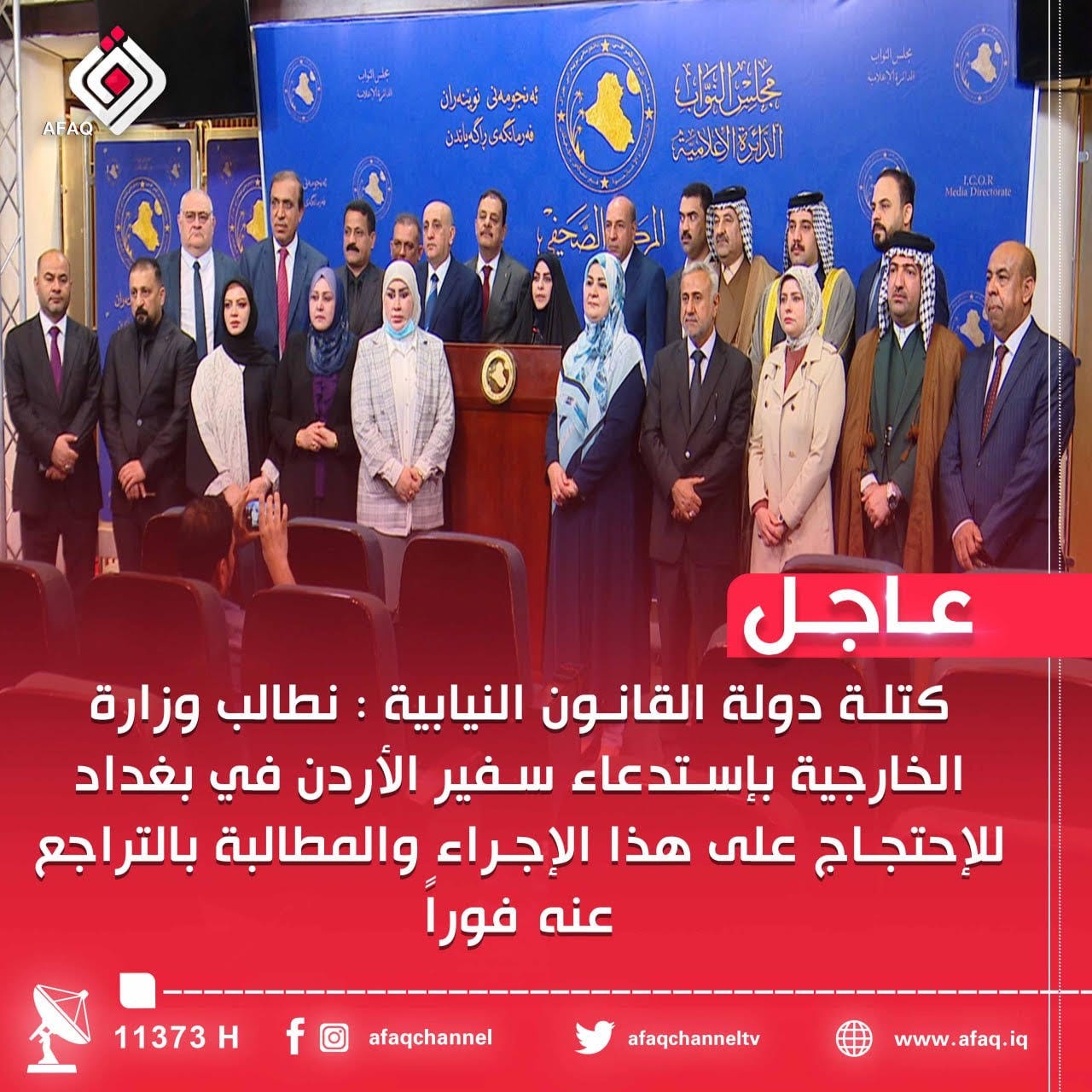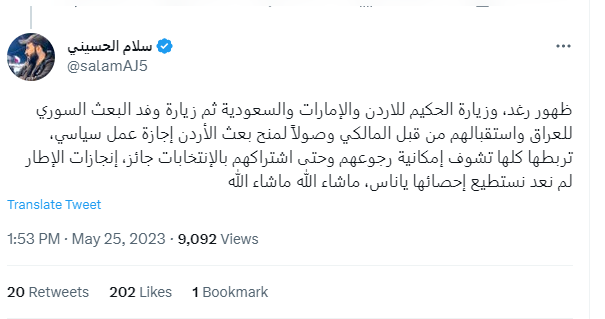Jordan is continuing its political modernization old parties re-registering and new parties emerging. As of this writing, it looks like 26 parties are registered with 5 more almost there. This very generous approach to registering parties seems to go against the original intent of making parties more understandable to the public. Won’t 31 party platforms be confusing to the public, swimming in the flood of populist buzzwords? Luckily, no! Because so far the majority of parties don’t have a clear platform. Of course this isn’t true for everyone, some parties have very clear platforms however these are the “ideological” parties – IAF, Hashed, social democrats and JCP. We also have technocratic parties with a multitude of answers to a multitude of questions but without a clear ideology. They’re promoting themselves as problem solvers, not visionaries.
For the rest, their positions are still a cold fog. They promote citizenship and national values, development in all areas and the dignity of Jordanian citizens. All of these are good things - good but not clear. As the contest for political communication launches some parties have decided instead to use the marketing strategy of a shawerma stand – but at least the product of a shawerma stand is very popular in Jordan.
Sarcasm aside, the parties face tremendous communication challenges. 98% of Jordanians believe Parliament does nothing worthwhile, and the majority of citizens do not believe the election results. We do not have an organic culture of political party participation. For historic reasons there are apprehensions about open partisan activity. Parties only have from now until then next parliamentary elections to: 1. Convince the public that party support is worthwhile 2. Convince Jordanians that voting in the next elections is worthwhile (turn out in the last parliamentary elections was 29.9% that’s 1.8 million voters only!) 3. Convince voters that when they get to parliament they can do something and lastly 4. Show how they are different from the other massive parties. This is a real challenge and we should praise sincere party founders for their diligence and determination, even if we satirize their foibles.
3 things you should know:
Low voter turnout: Jordan’s voter turnout has been declining since 2003. While turnout for local elections is usually less than 30% for parliamentary elections it has fallen from 58.8% to 29.9%. Turnout is highest in the Badia regions and very low in Amman. How would this affect parties? There is a chance that voters will not know which of the 30 parties or so they identify with and leave the party section blank on their ballot. Combined with general low turnout, that means that parties with plentiful resources like IAF or Eradah can win big on election day because they can mobilize their voters. When turnout is low, the institutions like Parliament are less legitimate. Special interests or powerful parties/candidates can wield much more influence. It is less about defeating your competition, or starting a national dialogue and more about getting your own people out. After all, you aren’t trying to convince a nation of 11 million, you just need to get a percentage of the 1.8 million voters that actually show up in order to beat the threshold and take some seats. When turnout is low, the composition of the electorate may not accurately reflect what the general population wants. The 30% of voters or so who will actually cast their ballot (this is about 1.8 million voters) are not undecided. They already have a reason to show up because they are committed to a candidate or party. The small parties will know that the big parties will dominate because they can attract more voters and manage to organize them and get them to the polls to cast those ballots. They won’t worry about attacking the other parties or ‘swing voters’, they will focus on getting their people to the polls. (And to the Jordanians, show up)
Jordanian political culture: Based on numerous cultural and social studies, Jordan is a very socially conservative, traditional society, with a history of a generous social contract. The Inglehart-Welzel Cultural Map is a good resource to show this. Anyone proposing austerity is not only unpopular in a bad economy, but going against our political culture. Jordanians are not free marketeers or globalists. We are progressive with social equality but not really with sexual identity. We celebrate religious tolerance, but not really secular governance. We value our liberties, but we are also concerned about community needs and social conformity. We are fine with hierarchical structures and central authority as long as we have freedom and liberties and protections within it. We value stability and are risk-averse which means we care for the elderly but don’t support the entrepreneurs much.
Priorities of Jordanian voters: Priorities of voters are downstream from their political culture. They believe decreasing the size of Parliament and reducing the number of Ministries is a very positive step. Over a third think that the Senate should be directly elected and that parties should play a greater role. But out of all the issues, the economy is the first priority. Jordanians expect a strong regulatory state, a generous social safety net, employment opportunities, a higher minimum wage, lower prices for fuel and utilities, and labor protections. But we don’t want to pay taxes. (This is partially because of our previous social contract in the 1980s, and because voters look to the Gulf for models). In the second tier, we want good infrastructure, social justice, throwing the corrupt in prison (but don’t touch our wasta!), and cleanliness everywhere. Basically, citizens want to be American libertarians but with a Norwegian government. Interestingly, we are skeptical of foreign investment and not very concerned about foreign policy (but we have strong opinions if you ask us). - Sources - CSS, IRI, KAS.
Vote buying: This is a curse of Jordanian elections. Ask a Jordanian if they have ever been offered money for a vote. Have they received a ‘convincing’ call from a relative who said that there would be a ‘benefit’ to voting the way they ask? Some individuals, especially the younger generation, are more direct, knowing that a specific candidate's office will pay them around 20 or 30 JOD for their vote. It is unfortunately very common in parliamentary elections - but not for local elections or among political parties. It remains to be seen if parties will engage in this outright bribery of voters or if increased party roles decrease vote buying. In the worst case scenario, larger parties buy positive media coverage and pay for extra votes, thus getting more seats. In the best case scenario, this practice decreases and those offering money are shamed or even prosecuted for what they do.
My take:
Democracy fits Jordan. Those who say that democracy doesn’t suit Arab states engage in hidden or blatant racism. But Western liberal democracy doesn't fit well. We should view democracy as a spectrum rather than a rigid template. Jordanians view democracy as rights protection and a social safety net - long before we worry about elections and a parliament. If I were asked for a successful platform in a country that matches Jordan’s culture, I would focus on job creation tied to national resources, strong leadership, working with traditional institutions, optimizing services and of course, decentralization. Decentralization, despite its jerky implementation, is a perfect fit for Jordan. The average Jordanian would like their mayor to have more power and they don’t care if parliament disappeared and was converted into a parking lot. (In Amman we think much more about parking than parliament). But in our neighborhoods we are all activists.
Many Ammanis live in apartment buildings where each resident owns their apartment, but no one really owns a building. But the neighbors come together when the elevator is out of order or the main door needs repairs. They argue over the cost, look at what they get for the money, and hold the repairman accountable if it breaks again too soon. That's really the system of governance we want - addressing a clear need, justifying the cost (tax) , holding officials accountable, and seeing a direct result. The further away from the citizen politics get - and the further from that example - the less comfortable we are. That’s one reason we would love decentralization and also why we demand so much explanation for what our officials are doing. Hopefully parties keep all this in mind as they tell the public about their goals and policies. What needs are you addressing? What do we need to sacrifice/pay to do it? How does it improve our lives?
Yes, this supports decentralized fiscal conservatism, and yes, Jordanians still desire a generous social contract. We have quirks, contradictions, and nuances. We mistrust government offices, yet over 70% of us would prefer working for the public sector instead of our humble private sector. We need a brave political party to tackle topics like the public sector, decentralization, the disorder in the private sector, the role of Parliament, and holding officials accountable. Instead of preaching about secular models or causing moral panic, telling us what is wrong without giving solutions, and complaining about Netflix we want a vision with a plan.
Articles of note:
Can Jordan fall in love with Saudi Arabia?
Not much here but a brief look at Jordan- Saudi relations using the upcoming nuptials as a platform.
Dawa Party Labels Jordan's Authorization of the Baath Party as 'Hostile and Provocative'
Considering how little Jordanians care about political parties, especially relics like the Baathists, politicos in Iraq are very worked up about them. The Baathists (who were split into two parties in Jordan) have been around since the 1990’s and this was a re-registration only. But some see a greater conspiracy believing foreign policy intentions and underground currents. "This action reflects unsound intentions towards Iraq and its stability, which will invariably have a negative impact on public and political sentiment, pressuring a reevaluation of the current relations with Jordan." There are some emotional statements. Do they know about the growing market for Saddam Hussein bumper stickers?!
Check out the below:





